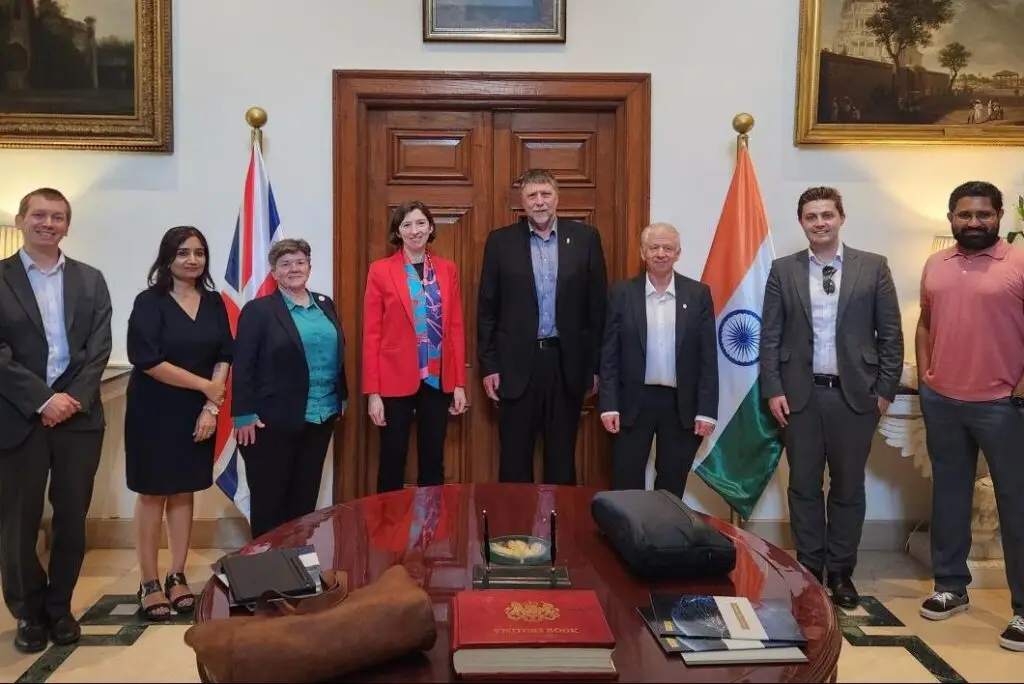A new agreement between the UK and India is set to enhance bilateral research in graphene technology. This collaboration involves The University of Manchester’s National Graphene Institute, among others.
UK Foreign Secretary David Lammy and Indian Prime Minister Narendra Modi met to discuss the partnership, which aims to foster growth in both nations.
UK-India Graphene Collaboration
An inter-governmental agreement between the UK and India has opened avenues for collaboration in graphene technology research and development. The National Graphene Institute (NGI) at The University of Manchester is at the forefront, identified as a pivotal stakeholder in the UK-India Technology Security Initiative (TSI).
During a visit to India, UK Foreign Secretary David Lammy and Indian Prime Minister Narendra Modi committed to boosting collaboration between The University of Manchester, the University of Cambridge Graphene Centre, and the Indian Institute for Science Bengaluru Centre for Nano Science & Engineering on advanced two-dimensional (2D) materials and nanotechnology.
Objectives and Focus Areas
The primary objective of the TSI is to enhance economic growth and address critical issues such as telecoms security and semiconductor supply chain resilience. This initiative will see both countries working closely in areas that are of mutual interest and concern.
The collaboration entails joint research ventures, student and start-up exchanges, and access to world-leading laboratories and prototyping facilities. For Manchester University, it signifies deeper engagement with established Indian partners.
Existing Collaborations and Activities
The University of Manchester has ongoing collaborations with several established institutions in India.
These partnerships include joint PhD programmes with the Indian Institute of Technology Kharagpur and the Indian Institute of Science, Bengaluru, focusing on 2D materials.
In addition, the university is deeply involved in research regarding Critical Minerals and Artificial Intelligence, hosting a UK-India Critical Minerals workshop in November 2023.
Statements from Key Figures
Prof Stephen Flint, Associate Vice-President International at The University of Manchester, expressed pride in the university’s commitment to India. He highlighted that India remains a high-priority country for partnerships across various domains including science, engineering, medicine, health, and humanities.
Lindy Cameron, British High Commissioner to India, noted that the TSI aims to leverage the scientific and technological strengths of both nations to deliver greater security and growth. She acknowledged The University of Manchester’s significant role in the collaboration.
Bicentenary Celebrations and Future Prospects
As part of its bicentenary celebrations, The University of Manchester recently hosted a gala in Mumbai. The event saw over 200 Indian alumni and representatives from partner organisations in attendance.
The university has honoured prominent Indian academics and industry leaders, including Prof C.N.R Rao and Mr Ratan Tata, with honorary degrees.
Manchester’s history of innovation in advanced materials positions it well for future collaborations. Researchers from The University of Manchester, Prof Andre Geim and Prof Kostya Novoselov, were awarded the Nobel Prize in Physics in 2010 for extracting graphene from graphite in 2004.
Significance of Graphene Research
Advanced materials, especially graphene, are a research beacon for The University of Manchester. The institution’s pioneering work in this area continues to garner international recognition and partnerships.
Graphene’s unique properties offer significant potential in various applications, including electronics, medicine, and materials science. It remains a key focus area for ongoing and future research initiatives.
Conclusion
The UK-India inter-governmental agreement marks a significant step toward collaborative innovation in graphene and other advanced technologies. This partnership promises to unlock new opportunities for research and development, benefiting both countries.
This collaboration highlights the mutual benefits of international partnerships in advanced material research. With strong foundations already in place, the future looks promising for both UK and India in the realm of graphene technology.


